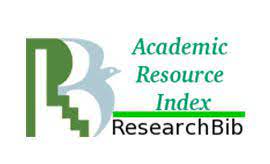STEM PROJECT — TOOL FOR THE FORMATION OF COMPETENCIES OF APPLICANTS FOR EDUCATION
DOI:
https://doi.org/10.51707/2618-0529-2021-20-07Keywords:
STEM-education, STEM-project, project with STEM elements.Abstract
The article attempts to define the concepts: “STEM-project” and “project with elements of STEM”. It is proposed to interpret the concept of “project with elements of STEM” as a set of practical forms and methods that effectively form the key competencies needed by each person for successful life, personality development, motivation to learn, creative thinking, research skills, ability to self-study through implementation competence approach during the implementation of STEM-projects. The necessity of implementation of project-research activity with STEM elements is substantiated not only at mastering of subjects of a natural-mathematical cycle, but also at mastering of all school courses that is quite real considering high level of integration of knowledge and skills of pupils in modern conditions. The introduction of STEM-projects in educational institutions determines the self-determination of young people, the effective solution of problems and tasks of career guidance work. The project activity is one of the most promising components of the educational process, which creates conditions for creative self-development and self-realization of students, forms all the necessary life competencies: multicultural, speech, information, political and social. The independent search for knowledge, their systematization, the ability to navigate in the information space, see the problem and make decisions is through the method of projects — effective learning technology. The relevance of the article is due to the need to expand the scientific and conceptual apparatus of STEM-education, providing practical advice on the implementation of forms, methods and techniques of STEM training in the general educational process.
References
Rozporiadzhennia Kabinetu Ministriv Ukrainy Pro skhvalennia Kontseptsii rozvytku pryrodnycho-matematychnoi osvity (STEM-osvity) vid 5 serp. 2020 roku № 960-r [Order of the Cabinet of Ministers of Ukraine On approval of the Concept of development of natural and mathematical education (STEM-education) from August 5 2020, № 960-r]. Retrieved from https://zakon.rada.gov.ua/laws/show/960-2020-%D1%80#Text [in Ukrainian].
Rozporiadzhennia Kabinetu Ministriv Ukrainy Pro zatverdzhennia planu zakhodiv shchodo realizatsii Kontseptsii rozvytku pryrodnycho-matematychnoi osvity (STEM-osvity) do 2027 roku vid 13 sich. 2021 roku № 131-r [Order of the Cabinet of Ministers of Ukraine On approval of the action plan for the implementation of the Concept of development of natural and mathematical education (STEM-education) until 2027 from January 13 2021, № 131-r]. Retrieved from https://zakon.rada.gov.ua/laws/show/131-2021-%D1%80#Text [in Ukrainian].
Dewey, J. (2003). Dosvid i osvita [Experience and education]. Lviv : Kalvariia [in Ukrainian].
Ohiienko, O. I. (2011). Tendentsii rozvytku proektnoi tekhnolohii u zarubizhnii pedahohitsi XX stolittia [Trends in the development of design technology in foreign pedagogy of the XX century]. Porivnialna profesiina pedahohika — Comparative professional pedagogy, 1, 31–38. Retrieved from http://www. khnu.km.ua/root/res/2-7001-15.pdf [in Ukrainian].
Zakon Ukrainy Pro osvitu : pryiniatyi 5 ver. 2017 roku № 2145-VIII [Law of Ukraine On Education from September 5 2017, № 2145-VIII]. Retrieved from https://zakon.rada.gov.ua/laws/show/2145-19#Text [in Ukrainian].
Shevtsova, I. H., Yermakov, I. H., Batechko, V. O., & Zhadka, O. V. (2008). Proektna diialnist u litsei: kompetentnisnyi potentsial, teoriia i praktyka [Project activity in lyceum: competence potential, theory and practice]. Kyiv : Departament [in Ukrainian].
Savchenko, O. Ya. (2015). Metod proektiv na urokakh literaturnoho chytannia [Method of projects in the lessons of literary reading]. Pochatkova shkola — Elementary School. 11, 26–31. Retrieved from http://nbuv.gov.ua/UJRN/Psh_2015_11_11 [in Ukrainian].
Honcharova, N. O. (2017). Poniatiino-katehorialnyi aparat z problemy doslidzhennia aspektiv STEM-osvity [Conceptual and categorical apparatus on the problem of researching aspects of STEM-education]. Naukovi zapysky Maloi akademii nauk Ukrainy — Scientific Notes of the Junior Academy of Sciences of Ukraine, 10, 104–114 [in Ukrainian].
Tsekhmister, S. (2020). Stvorennia holohramnoho proiektora [Creating a hologram projector]. STEM-tyzhden — 2020 — STEM-week — 2020 (pp. 246–247) [in Ukrainian].
Poliakova, V. (2020). Tema uroku: “D. W. Jones. Mandrivnyi zamok Khaula”. Obraz Sofi, svit yii mrii, bazhan, zhakhiv [Lesson topic: D. W. Jones. “Howl’s Wandering Castle”. The image of Sophie, the world of her dreams, desires, horrors]. STEM-tyzhden — 2020 — STEM-week — 2020 (pp. 285–292) [in Ukrainian].
Kovalenko, M. V. (2020). Elementy meikerstva na urokakh istorii. Mini proiekt “Piramida Kheopsa” [Elements of making in history lessons. Mini-project “Pyramid of Cheops”]. STEM-tyzhden — 2020 — STEM-week — 2020 (pp. 320–321) [in Ukrainian].
Vasylashko, I. P., & Bulavska, L. H. (2020). STEM-tyzhden u ramkakh festyvaliu “STEM-vesna — 2020” [STEM-week within the festival “STEM-spring — 2020”]. STEM-tyzhden — 2020 — STEM-week — 2020 (pp. 7–10) [in Ukrainian].
Miroshnyk, S. I. (2014). Teoretychni osnovy navchalnoi proiektnoi diialnosti uchniv [Theoretical foundations of educational project activities of students]. Narodna osvіta — Public education. 2(23). Retrieved from https://www.narodnaosvita.kiev.ua/?page_id=2383 [in Ukrainian].
Downloads
Published
How to Cite
Issue
Section
License
Copyright (c) 2022 Scientific notes of Junior Academy of Sciences of Ukraine

This work is licensed under a Creative Commons Attribution 4.0 International License.













